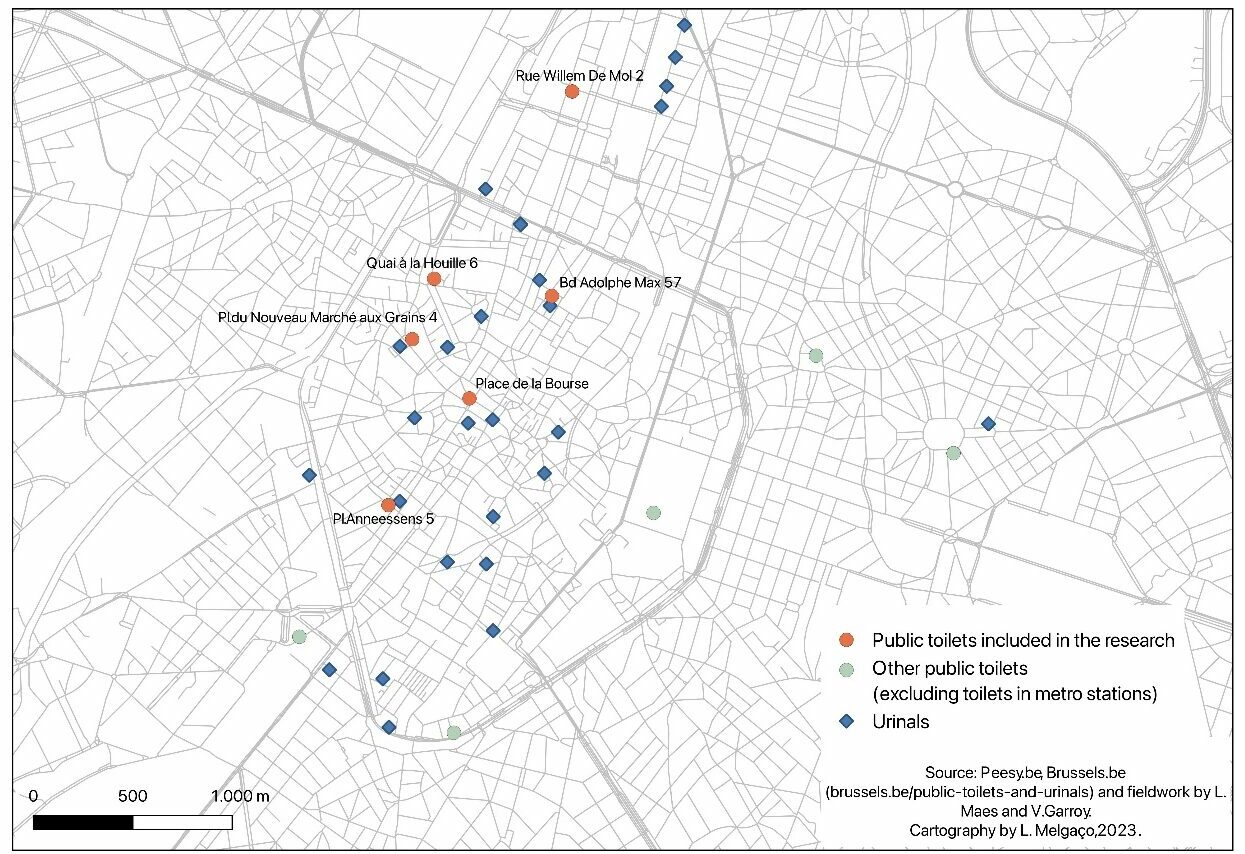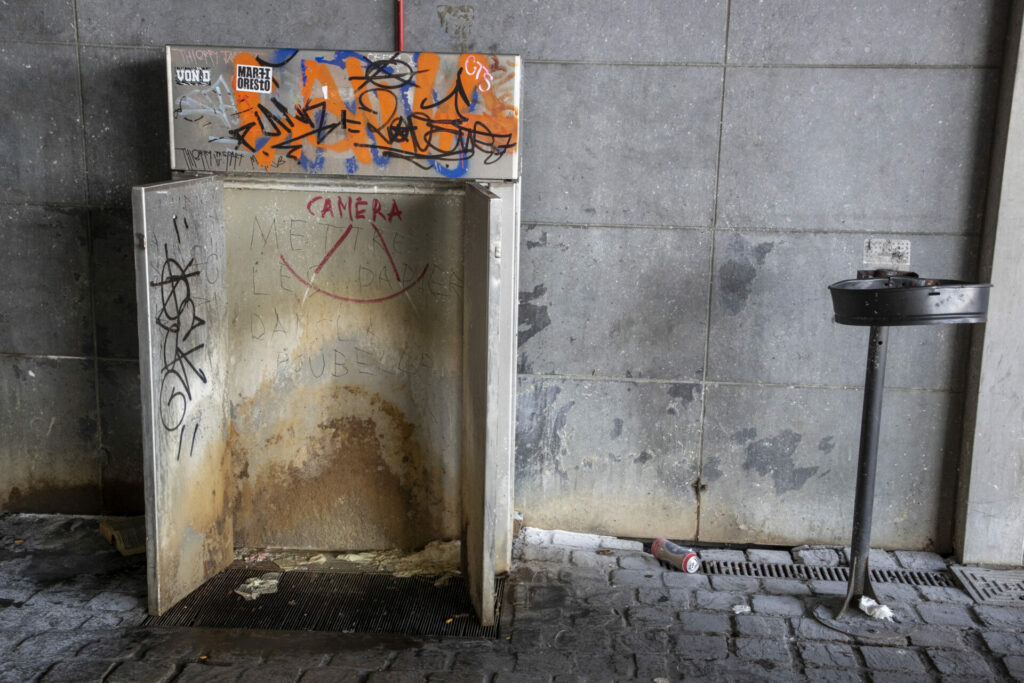Finding a public toilet in Brussels is like trying to find a needle in a haystack. Researchers have called for the Capital Region to increase the number of public toilets available, but they can often cause a nuisance.
Public space is only inherently public if toilets are of a certain standard, researchers Lien Maes and Lucas Melgaço argued in the latest edition of Brussels Studies, an interdisciplinary journal focused on urban research on the Belgian capital.
"If public spaces are designed for people to stay in and enjoy [...] they should offer options for people to relieve their basic physiological needs," they argued. The researchers added that the available toilets should be free and above all accessible for women, the elderly and the homeless.
Brussels fails to live up to the task, however: the current provision of public toilets in the centre of the capital is limited, with one toilet per 11,000 inhabitants, and they are often inaccessible, the latest data in 2021 showed.
Necessary but a nuisance
The study was based on in-depth interviews with relevant public services, such as the Cleaning Service and the Prevention Service of the City of Brussels, Green Spaces councillor Zoubida Jellab, and local police and businesses.
The toilets included in the analysis were located on Quai à la Houille, Place Anneessens, Boulevard Adolphe Max, Place du Nouveau Marché aux Grains, Place de la Bourse and Rue Willem De Mol.

The map also shows other public toilets and urinals outside the limits of the City of Brussels to make clear the considerable difference in the offer of these two types of facilities. Credit: Lucas Melgaço
The researchers carried out on-site observations at these locations for around ten hours to document the different facilities and the state they were in.
Although public toilets have many advantages and are vital for some (such as those with medical problems or incontinence and outdoor staff such as street sweepers), they often pose a significant challenge. This also extends to the surrounding area when they are not well maintained.
In Brussels, the researchers found that the toilets were clogged, littered with plastic bottles, toilet paper, cigarette butts, aluminium foil and sanitary towels. Several others served as places where people consumed drugs.

Photograph taken at Quai à la Houille on 2 February 2020: Credit: Lien Maes
In some cases, there were scenes of more serious crimes, such as hidden weapons discovered in the toilet on Place de la Bourse. In another, a dead body was found (although the researchers stressed that this does not represent the everyday nuisances found in public toilets).
The state of Brussels' public toilets is so bad that residents and shop owners often campaign against having them close to their homes and businesses.
Sanitary solutions
Various solutions have previously been proposed to curb these nuisances to public spaces. Suggestions include removing the toilets, installing cameras or permanent toilet attendants, and monitoring or controlling who accesses them, including by making them payable.
"These measures, however, only have a small impact as the problems are linked to structural issues such as homelessness and drug use in public spaces," said Maes and Melgaço. "These solutions therefore ought to be treated with a degree of scepticism as they may produce more problems than they purport to solve."
They argued that public toilets and nuisance go hand in hand and that this cannot be solved with a few 'quick-fix' interventions. Instead, they argued that, if Brussels wants to make public spaces inviting and diverse, further attention should be paid to a more extensive and well-maintained supply of free public toilets.

